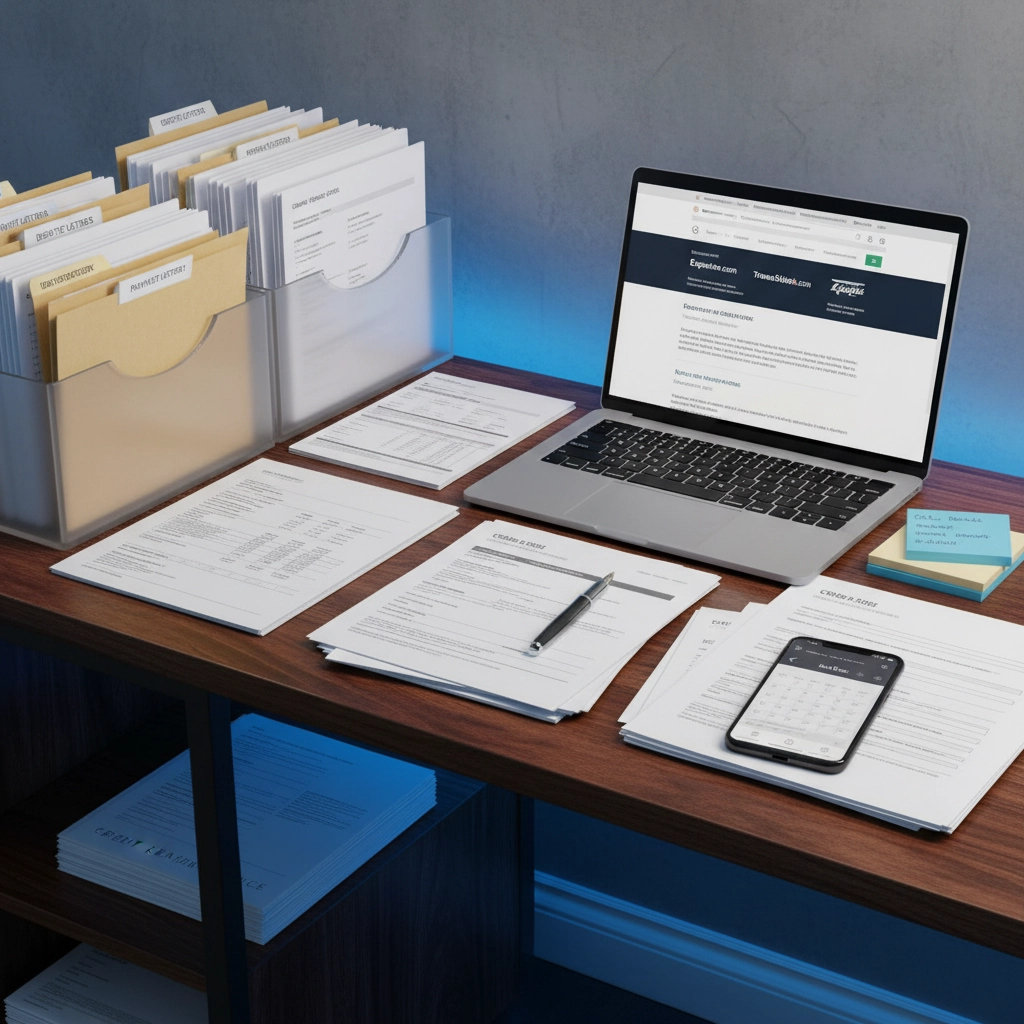Are Expired Debts Still Hurting Your Credit? Here's the Truth About Removal

If you've been wondering whether those old debts from years past are still dragging down your credit score, you're not alone. Many people assume that once a debt gets old enough, it simply disappears from their credit report. Unfortunately, it's not always that straightforward.
The truth is that expired debts can still hurt your credit score in some situations, but you have more power than you might think to address this issue. Let's break down exactly what you need to know about old debts and how they impact your financial future.
The Seven-Year Rule: Your Foundation for Understanding
Here's the good news: under the Fair Credit Reporting Act (FCRA), delinquent debts must be removed from your credit report after seven years from the date of the first missed payment. This is your legal protection, and it applies to most negative items including late payments, charge-offs, and collection accounts.
But here's where it gets tricky – that seven-year clock starts ticking from the original delinquency date, not from when the debt was sold to a collection agency or when you last made a payment. Understanding this timing is crucial because it determines when you can expect that negative mark to disappear from your credit report.

The challenge many people face is that credit reporting agencies and debt collectors don't always follow these rules perfectly. Sometimes old debts linger on credit reports well beyond the seven-year mark due to reporting errors or outdated information. This is where knowing your rights becomes essential.
Time-Barred Debt vs. Credit Reporting: Two Different Timelines
One of the biggest misconceptions about old debt involves confusing two completely different legal concepts. You need to understand that the statute of limitations on debt collection is separate from credit reporting timelines.
Here's what this means for you:
- Statute of limitations: This determines how long a creditor can legally sue you to collect a debt. This varies by state and typically ranges from 3-6 years.
- Credit reporting timeline: This is the seven-year period during which negative items can appear on your credit report.
Even after a debt becomes "time-barred" (meaning creditors can no longer sue you), it can still appear on your credit report and negatively affect your credit score until that seven-year reporting period expires. This means lenders can still see the delinquency when you apply for credit, potentially influencing their decision even though the debt collector can't take you to court.
Should You Pay Off That Old Debt?
This question keeps many people up at night, and the answer isn't always straightforward. Paying off old debt won't automatically remove it from your credit report, but it can have benefits depending on your situation.

Here's what you need to consider:
Newer Credit Scoring Models: If lenders use FICO 9 or VantageScore 4.0, these models disregard paid collection accounts when calculating your score. This means paying off the debt could potentially boost your credit score immediately.
Older Credit Scoring Models: These may still factor in paid collections, though they typically view a paid collection more favorably than an unpaid one.
The Revival Risk: Here's an important warning – paying off very old debt may actually "revive" the account by updating its status. In some situations, this could potentially restart certain clocks related to the debt, though it shouldn't affect the seven-year credit reporting timeline.
Before you pay anything, consider your goals. Are you trying to improve your credit score, or are you being pressured by debt collectors? Understanding your motivation will help you make the right decision.
How to Remove Old Debts From Your Credit Report
You have the right to dispute inaccurate, outdated, or unverifiable items on your credit report. Here's your action plan:
Step 1: Get Your Credit Reports
Request free copies from all three major credit bureaus (Equifax, Experian, and TransUnion) through AnnualCreditReport.com. You're entitled to one free report from each bureau every year.
Step 2: Identify Problem Items
Look for debts that are older than seven years from the original delinquency date. Also watch for other inaccuracies like incorrect balances, wrong dates, or debts that aren't yours.
Step 3: Document Everything
Keep records of all your communications, including dates, names of people you spoke with, and copies of all correspondence.

Step 4: File Formal Disputes
You can dispute items online, by phone, or by mail with each credit bureau. Be specific about what information is incorrect and why it should be removed or corrected.
Step 5: Follow Up
Credit bureaus have 30 days to investigate your dispute. If they don't respond within this timeframe, the item should be removed from your report.
Negotiating Pay-for-Delete Agreements
Another strategy worth considering is negotiating a pay-for-delete agreement with creditors or collection agencies. This involves offering to pay the debt in exchange for complete removal from your credit report.
While not all creditors will agree to this arrangement, it's worth attempting, especially for smaller debts. Get any agreement in writing before you make a payment, and never give collection agencies electronic access to your bank account.
The Impact on Your Financial Future
Understanding how expired debts affect your credit is crucial for making informed financial decisions. Even one old negative item can lower your credit score by 60-110 points, affecting your ability to get approved for mortgages, auto loans, credit cards, and even job opportunities.
The good news is that as negative items age, their impact on your credit score diminishes. Recent activity carries much more weight than older items, so focusing on building positive credit history while addressing old debts is often the most effective approach.

When to Seek Professional Help
If you're dealing with multiple old debts or complex credit report issues, consider working with a reputable credit repair company. Professional credit repair services can help you navigate disputes, negotiate with creditors, and develop a comprehensive strategy for improving your credit score.
Look for companies that:
- Offer a free consultation
- Explain your rights under federal law
- Provide realistic timelines for results
- Don't ask for payment upfront
- Have positive reviews and proper licensing
At Chrome Haris Credit Repair, we specialize in helping people understand and exercise their rights under the Fair Credit Reporting Act. Our team can review your credit reports, identify items that should be removed, and guide you through the dispute process.
Take Control of Your Credit Today
Don't let expired debts continue to hold back your financial progress. The seven-year rule exists to give you a fresh start, but only if you know how to use it effectively. By understanding your rights, monitoring your credit reports, and taking action when necessary, you can remove old negative items and improve your credit score.
Remember, you have the power to challenge inaccurate information on your credit report. The process may take time and patience, but the results – improved credit scores, better interest rates, and more financial opportunities – are worth the effort.
Your credit score affects nearly every aspect of your financial life, from the interest rates you pay to the housing options available to you. Take control today by requesting your credit reports, identifying old debts that should be removed, and starting the dispute process.
Ready to take the next step? Get your free credit report review and let our experts help you identify what's holding back your credit score. Don't wait – every day you delay is another day those expired debts could be unnecessarily hurting your financial future.
Are you a merchant looking for affordable credit card processing solutions? SignaPay Direct offers competitive rates and reliable service. Apply today to streamline your payment processing.
